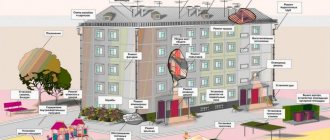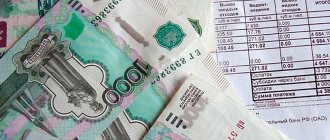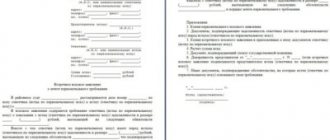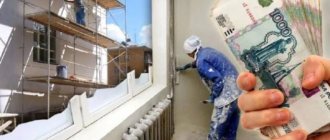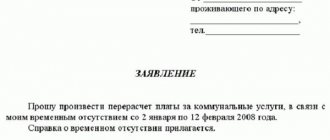According to current laws, people who own residential real estate that is part of apartment buildings must pay considerable sums from month to month for major repairs of the area that is considered common property. In particular, this money should be used to regularly repair the facade, roof, and entrances. In practice, such work has to wait for years. This encourages many to ignore contributions for major repairs. In this case, each new payment comes more than the previous one, since management companies charge special interest on late payments. They are called “penalties for major repairs”.
Disputes and laws
To this day, major renovations of areas that are in the common possession of all home owners cause a large number of disagreements. How legal is it to compulsorily collect money from all those who own property in a high-rise building? Is it right to charge additional amounts from those who are not ready or cannot pay on time for major repairs? And in general: over the past few years, many management companies in our country have accumulated decent millions, sent to the bank and bringing benefits in the form of interest, which each “manager” puts in her own pocket without benefit to the residents who paid the money.
But not paying what is due on time is fraught with danger. Penalties for major repairs are calculated using a special formula. From month to month, bills grow and grow until the numbers begin to frighten even those who are used to dealing with debts. In this situation, people are trying to figure out whether the penalty for major repairs was calculated correctly, whether the court can come to their aid, and also how to reduce the debt without parting with a huge amount of money. Unfortunately, the legislation has not yet been worked out thoroughly enough, so certain difficulties arise regularly.
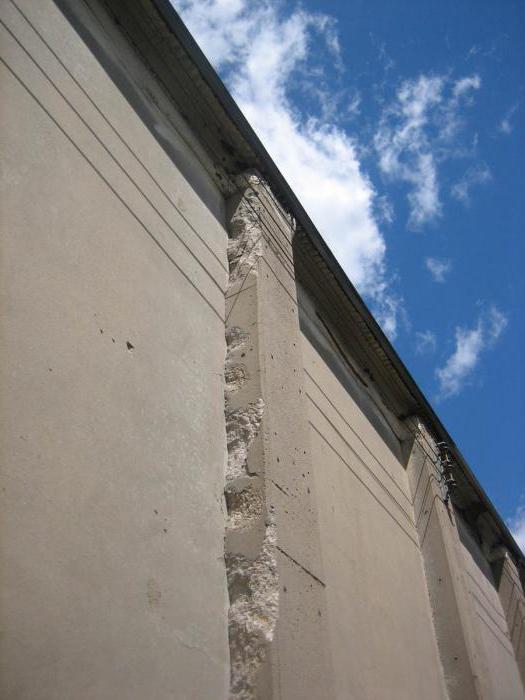
Contributions: how it works
The law, according to which it is necessary to create a special account for major repairs of a house, collect money from the owners on a monthly basis, and then spend it on major events to maintain the building in good condition, was adopted back in 2012. It follows from the document that from this moment on the owners are responsible for maintaining the structure and making repairs as needed. The legislative act came into force on the first day of 2014. And immediately, out of all other bills for housing and communal services, major repairs stood out in large sums.
According to the law, such repairs are carried out according to the following scheme:
- every month the owners pay certain amounts, which are collected by the fund responsible for this;
- The fund uses the money raised to carry out repair work.
The organization of work is carried out through a regional tender, during which any organization with suitable capacity and qualifications expresses a desire to participate in the contract.
How to spend money?
The company that wins the auction draws up a major renovation project and, as soon as it is approved, implements all the specified work on communications inside the house and on the territory related to this house. In this way, it is possible to install, for example, devices for metering the consumption of resources in a building. The fund withdraws money from the amount paid by the owners and settles with the contractor.
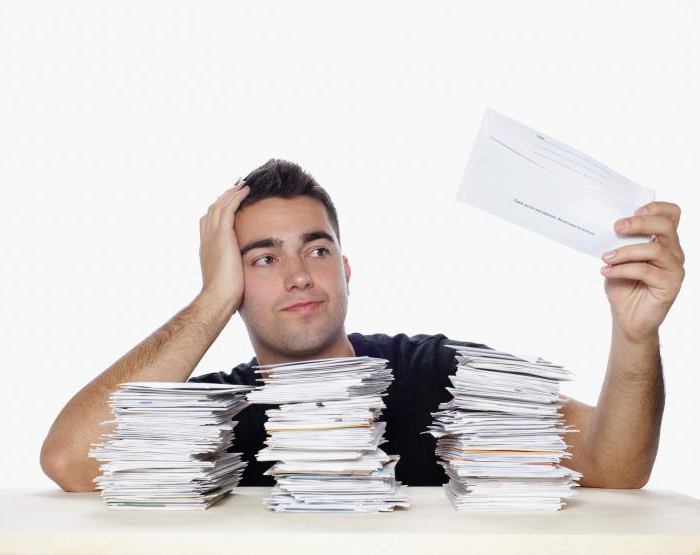
Contributions for major repairs paid by the owners of territories in a residential building are accumulated in the fund of the registered region where the building is being built. There are regional funds that work with contractors, organize tenders and create lists of organizations capable of completing the work. They have the right to operate only in their region.
Who has the right not to pay a fee for major repairs?
The Housing Code provides for cases when payments for major repairs may not be made. Here are the citizens who have the legal right not to make contributions to the capital repair fund:
- owners of apartments in multi-apartment buildings whose condition is recognized as emergency;
- residents of apartments that are not privately owned, but municipally owned;
- WWII veterans;
- people who have the title “Honorary Citizen of Russia”;
- persons whose age exceeds 80 years.
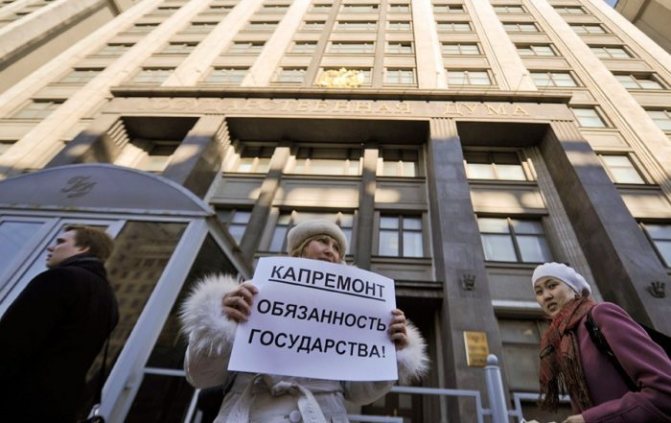
Payment for major repairs is not mandatory for residents of new buildings, but only for the warranty period.
How to pay?
Money collected for major repairs is paid through the operator of a particular region. Payment deadlines are regulated by regulations adopted by the territorial formation. The documentation also tells you exactly how to pay. In this case, the money is paid “month by month.” This means that bills for January will arrive in January, bills for February will arrive in February, and so on.
In some regions, authorities have established that the payment deadline is until the 10th of the next month. This scheme is familiar to everyone, since it has long been customary to pay other housing and communal services bills using it. As a result, bills received, for example, for January, the owner must pay off no later than February 10. If this does not happen, a debt for major repairs arises.
What to pay and how much?
In order to pay money, which will then be used to repair the facade, roof, communications, you must first receive a receipt. It tells you how much money should be given away. In short, the system is similar to the one by which usual services are paid: water, gas, heat. You can pay either through special cash desks or through a bank or post office. The easiest option is to use your personal account in the online version of your bank. However, you need to carefully enter the details so that the payment goes where it is needed.
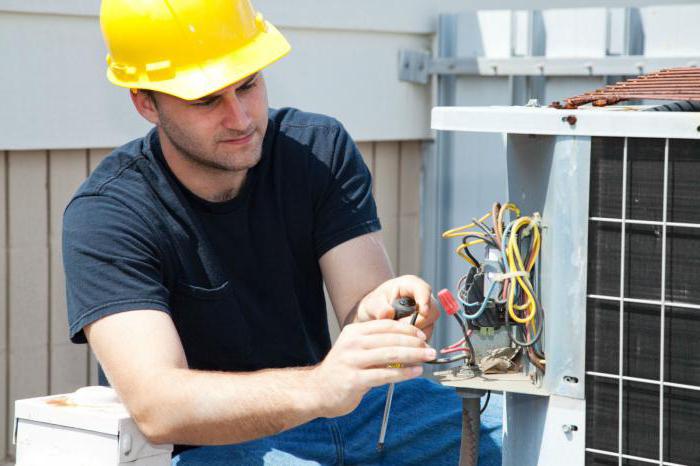
How large a figure the owner will see on the receipt is determined by the following factors:
- area of housing owned;
- regional tariff;
- presence of debt.
In many regions the tariff is about five rubles per square meter. The region's Federal Financial Markets Service can provide accurate information at any time. Specialists are obliged to clearly explain to everyone what the base rate is, what factors play a role, how you can pay and by what time it will have to be done, as well as the answer to questions about why this money is paid and what benefit it will bring to the owner.
What if you don't pay?
If a citizen who owns property in a multi-storey building is unwilling or unable to pay for major repairs on time, then he is issued a fine. This issue is regulated by Article 155 of the Housing Code in force in our country. It follows from it that a person who is late in payments must repay his debt in full, and in addition to it, also pay penalties for major repairs. How large the interest is is established by the 14th part of this article. Penalty and interest are different concepts, which in this particular case are often equated to each other, since we are talking about charges applied to a person in debt.
But from the official point of view, there are no penalties for major repairs at all, as well as penalties associated with late payments. The FCR calls this money reserves, taken to replenish the fund's reserves. That is, this additional money, as well as the contributions required by law, goes into the “common pot” to be used for major repairs. Such complexity of terminologies leads to the fact that many are convinced that penalties for major repairs are illegal and there is no need to pay them. In practice, the complexity of using official terms excludes the possibility of avoiding debt settlement: you will still have to pay, no matter what you call it, because additional charges are called “penalties” only among the people and are fully consistent with the law.
Calculation of penalties for major repairs
- Homeowners pay monthly fees for major repairs. The amounts of funds are accumulated by the Capital Repair Fund (CRF).
- FKR undertakes the obligation to carry out repairs at the expense of the owners. In this regard, the FKR is holding a tender among contractors wishing to carry out repair work in a particular region.
- The contractor who wins the tender carries out major repairs of common areas (roof, façade, foundation, etc.), intra-house systems and utilities, installs communal heat and gas meters, etc. The contractor is paid by the FKR using contributions from homeowners.
In 2020, State Duma deputies appealed to the Constitutional Court demanding confirmation of the legality of fees for major repairs. In April 2019, the Constitutional Court approved the validity of contributions to the Overhaul Fund.
At the same time, the court made the following clarification: home owners can independently undertake obligations to raise funds for major repairs and their implementation.
Accrual of penalties for non-payment of contributions or late payments for major repairs - is this legal? From what moment is the penalty accrued and how to find out its size
Knowledge of when a penalty for failure to pay for capital repairs may be applicable only comes when the offense has already been committed. But you have the opportunity to familiarize yourself and receive information before you commit a violation of the contract.
- Fine . Assigned in the amount of several wages for the purpose of educational influence on the defaulting citizen. The money goes into the capital repair fund.
- Another effective punishment is a ban on leaving the state . The name of the defaulter is entered into a special database and does not allow documents to cross the border during customs control.
Calculation of penalties for major repairs
Although the amount of penalties for non-payment of contributions for major repairs is not so high, since it is only 1/300 of the refinancing rate of the debt amount, as a result, the debt increases daily in proportion to the size of the unpaid fee and the already accrued penalty.
Although the penalties are not that high, experts recommend paying off the debt as soon as possible after you become aware of it. Over time, this debt may develop into a more significant one, which will cause negative consequences for the defaulter.
It's time to understand a complex topic! The accrual of penalties for major repairs raises more and more questions
For almost a year, residents of South Urals lived with the hope that they would not have to pay for major repairs and that there would be no penalties against them. On March 1, 2020, contributions began to be collected from residents of the region, but on January 1, 2020, the Regulator of Overhauls ran out of patience.
It was from this day that the fund began to charge penalties to defaulters. Moreover, those who initially ignored the new payments began to be charged a penalty for the entire amount of debt at once.
It is worth saying that this had an effect - many decided not to play with fate and hastened to repay the debt to the Regoperator.
If we take, for example, a standard apartment with an area of 40-45 square meters, then the penalty for each day of delay will be about 10 kopecks.
It seems like a trifle, but if you remember that a little more than 50% of the population regularly pays contributions for major repairs in the Chelyabinsk region, you get a rather impressive amount.
Moreover, 15% of residents of the Chelyabinsk region have never paid for major repairs since March 1, 2020.
What may be the consequences of non-payment for major repairs - court
In this case, a penalty is charged, which is comparable to the amount of the debt. In case of non-payment of the required amount after another day, the amount of debt doubles . When the payment process is delayed, the penalty continues to grow every day until the debt is fully repaid.
The authorities have chosen the legal form of operators that accumulate funds for capital repairs in such a way that they can accumulate funds only on a voluntary basis. This applies to payments from both individuals and legal entities.
Is a penalty charged for late payment of contributions for major repairs of an apartment building?
However, according to part 14.
1 of Article 155 of the Housing Code of the Russian Federation, owners of premises in an apartment building who have lately and (or) not fully paid contributions for capital repairs are required to pay interest in the amount established in the manner prescribed by part 14 of Article 155 of the Housing Code of the Russian Federation, that is in the amount of one three hundredth of the refinancing rate. of the Central Bank of the Russian Federation, valid at the time of payment, from amounts not paid on time for each day of delay, starting from the next day after the due date for payment up to and including the day of actual payment.
From January 1, 2020 to the day of actual payment, penalties are charged in the amount of 1/130 of the refinancing rate (in accordance with Part 14 of Article 155 of the Housing Code of the Russian Federation as amended by Federal Law No. 307, effective from January 1, 2020), since by January 1, 2020 the period of delay exceeds 90 days from the date of payment.
According to the Housing Code of the Russian Federation, payments for residential premises and utilities must be paid monthly by the 10th day of the month - for the previous one (unless a different period is established by the apartment building management agreement). From the 11th day of the new month, penalties are applied - penalties.
Is it legal to charge penalties for major repairs not done?
According to Part 14.1. Art.
155 of the Housing Code of the Russian Federation, of premises in an apartment building who have lately and (or) not fully paid contributions for capital repairs are required to pay a penalty to the capital repair fund in the amount of one three hundredth of the refinancing rate of the Central Bank of the Russian Federation, valid on the day of actual payment, from not the amount paid on time for each day of delay, starting from the next day after the due date for payment until the day of actual payment. Payment of the specified penalties is carried out in the manner established for the payment of contributions for major repairs.
According to Part 1 of Article 330 of the Civil Code of the Russian Federation, a penalty (fine, penalty ) is a sum of money determined by law or contract , which the debtor is obliged to pay to the creditor in the event of non-fulfillment or improper fulfillment of the obligation , in particular in the case of delay in fulfillment.
As Gazeta.Ru learned, penalties for major repairs could double. Penalties will begin to accrue only a month from the date of delay, but after three months the fine will immediately double, as follows from the bill submitted to the State Duma. This will hit the ideological opponents of the overhaul, of which there are quite a few in the country. The initiative has already been supported by the Ministry of Construction.
“Already today we have obliged regional capital repair operators to report quarterly on the work done on their websites and in the media, and in many regions, information about the work of the reoperator and the implementation of the program has already been posted on the GIS housing and communal services portal. Anyone can familiarize themselves with it if they wish,” he said.
We recommend reading: Discount on housing and communal services for families with many children
Source: https://truejurist.ru/alimenty/raschet-peni-za-kapremont
How much penalty should I pay?
How large can the penalties for major repairs be? This depends on a number of factors. Arrears occur when the owner:
- did not pay the entire amount of bills;
- paid the amount in full, but not on time;
- paid nothing on the bills for major repairs.
Any of the options involves a violation of the order established by law and leads to the collection of additional money. The fine is calculated using the formula:
P = Wk x StRef: 300
Ned is the amount that the fund did not receive from the owner. StRef is the refinancing rate introduced by the Central Bank of the country. There is a possibility that the rate has changed during the period for which calculations are being made. In this case, take the indicator valid on the date of issue of the current account.
When is the penalty calculated?
What happens if you don’t pay for major repairs, don’t transfer contributions, will fines be applied to such homeowners?
Those who are accustomed to paying utility bills on time and understand the responsibility for their home, not just their apartment, do not have to accumulate debt and look for ways to pay it off. But some irresponsible residents expect free services and do not pay receipts for major repairs.
IMPORTANT! Debtors should know that they are subject to liability for debts in accordance with Article 155 of the Housing Code. This article not only obliges them to pay receipts for major repairs, but also provides for various consequences of non-payment.
In particular, interest is accrued to debtors for non-payment of contributions; they replenish the FCR. But this is not a penalty, according to the Fund’s explanations, since additional interest on overdue payments, as well as the contributions themselves, are used for repair work. The law on non-payment was adopted a long time ago; all residents should have become familiar with its provisions and understand the need to jointly pay for repairs in their home.
The amount of interest, or as many call it, penalties, depends only on the amount of debt. Apartment owners may not pay the fees in full, pay late or pay in part.
Each of these cases of late payments only leads to an increase in the payment amount. Therefore, residents who ask the question “what are the consequences of non-payment of contributions specifically for me?” must take into account the period of delay and the accumulated amount of the contribution.
The standard formula is used to calculate the interest that needs to be contributed to the Capital Repair Fund - P = Week * StRef / 300. In this case, Ned is the non-payment (its amount), and StRef is the refinancing rate of the Central Bank. The rate must correspond to the current moment; it can be found out when contacting the bank.
What to do?
If a certain owner has received a notice and it follows from an official document that he has violated the procedure for paying contributions for major repairs, which leads to the collection of additional amounts, he can calculate for himself how much he will have to pay. In order not to miss anything, it is recommended to collect as much information as possible and check whether you really broke the law or whether the paper arrived in error.
It all starts with finding out the standards that are fair for a particular region. So, contact the regional fund to find out what the deadlines for payment are. Next, check on what specific day you redeemed the receipts received. This information can be found in payment documents: bank statement, receipt or check.

If it is determined that payment occurred after the due date, you need to calculate how large the time difference is in days. In this case, the first is not the day on which the amount must be paid, but the next one. For example, if the region has a payment deadline of the 10th of the next month, then the first day of delay is the 11th. The last day is the one when the money was actually sent to the recipient, that is, to the fund or management company.
If the entire amount was paid late, then it is all considered arrears and takes the place of the “Wed” variable in the above formula. If part of the invoice amount was sent to the recipient before the required day, and part - after, then the second amount is used as arrears, that is, sent with a delay.
The late payment notice contains a date. On the Central Bank website, check how high the refinancing rate was at that moment. So, all the information is available, so the numbers can be substituted into the previously specified formula. The calculation results must be compared with the figure in the notification. If there is a discrepancy, you must contact the regional fund and demand an explanation.
Penalty calculator for late payment for major repairs 2020
From January 1, 2020, they increase to 1/130. This coefficient will be valid only from the 91st day of delay. If payment is received within 30 days from the payment date specified in the receipt, no penalty will be charged. If the payment is received from the 31st to the 90th day from the due date, the amount of the penalty will remain at 1/300.
We recommend reading: Portable vibration speaker for neighbors
Calculator for calculating penalties for major repairs in 2020
In accordance with Part 14.1 of Article 155 of the Housing Code of the Russian Federation, penalties are accrued in the amount of 1/300 of the refinancing rate of the Central Bank of the Russian Federation, effective on the day of actual payment, of the amount not paid on time for each day of delay, starting from the 31st day following the day of the established payment deadline , on the day of actual payment.
Based on the approach to the implementation of capital repairs in many regions, the question arises whether people have the right to charge penalties for capital repairs. According to the legislation, namely the Housing Code of the Russian Federation, the imposition of sanctions is enshrined in Article 155 of this standard and has no exceptions to the mechanism of its implementation. Also, in any other legislative act there are no measures that would protect citizens from these exactions, which, in fact, do not bring practical benefit to residents.
And then everything is simple. The court will make a decision to collect a certain amount and send a writ of execution to the bailiffs, and they have their own ways of getting the money. Starting from the seizure of bank accounts or withdrawal of money from them, ending with a ban on leaving the country.
Calculator for calculating penalties when paying for major repairs in 2020
Innovations for the coming season include the introduction of a special coefficient, which will determine the percentage of accidents, the correct procedure for motorists to contact lawyers specializing in this issue, an electronic policy and something else. Do they have the right to charge penalties for major repairs?
Although the amount of penalties for non-payment of contributions for major repairs is not so high, since it is only 1/300 of the refinancing rate of the debt amount, as a result, the debt increases daily in proportion to the size of the unpaid fee and the already accrued penalty.
Black fuel travels a long way before it ends up in the furnace. Heating prices are appropriate - the amounts are several times higher than in large cities in the region. Why do you have to pay 6 thousand rubles even in summer? You also need to remember that penalties must be calculated if the deadlines for making mandatory payments to the budget withheld by tax agents are violated.
Penalty calculator for major repairs
In addition, it is allowed to demand only one of the specified interest charges on debts. That is, the creditor, in this case the utility companies, does not have the right to demand a legal penalty defined by the Housing Code when a penalty is charged according to the terms of the contract.
When the ownership of premises in an apartment building is transferred to the new owner, the previous owner’s obligation to pay for capital repairs is transferred to the new owner, including the obligation not fulfilled by the previous owner to pay contributions for major repairs.
To pay or not to pay?
Major repairs, contributions for them, penalties associated with late payment of amounts are the topic of a huge number of conflicts between individuals and management companies. Obviously, many people turn to the courts in search of justice, so in just three years a decent amount of practice has already accumulated.
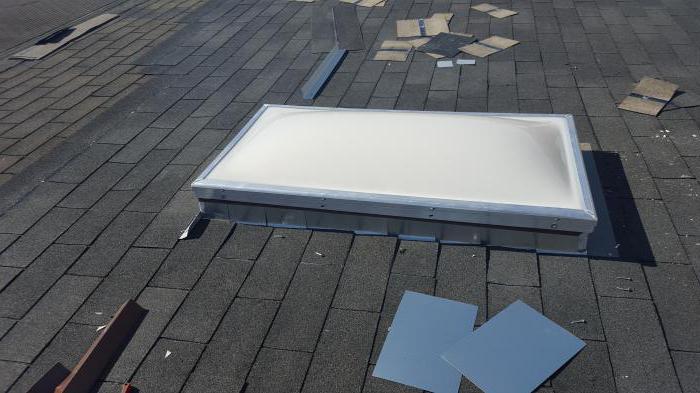
The main reasons for not paying receipts:
- The Tax Code does not contain a requirement to pay contributions for capital repairs.
- The Tax Code makes no mention of penalties, late payments, or additional charges associated with non-payment of bills for major repairs.
- The country's laws make no mention of payment for outstanding utility bills.
Since management companies and funds collect money for major repairs just like that, but cannot provide either a certificate of completion or an estimate confirming that the repairs were carried out, people who do not want to pay on receipts refuse to contribute money.
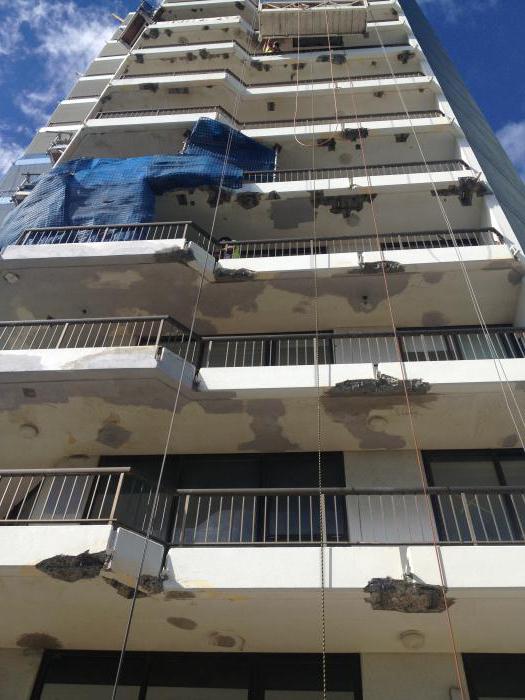
Penalties for Major Repairs in 2020
By registering on this site, you can find out not only the amount of possible debt, but also pay it by transferring money to an electronic account. This method saves significant time. Arriving in person at the address indicated on the website with your passport. The operator of the regional fund will inform you about the debt for major repairs upon personal contact.
Penalties for Major Repairs in 2020
If payments are accrued earlier, then residents must apply to the regional capital repair fund. According to the law, the only body that can oblige the debtor to pay money for major repairs is:. The choice of this authority depends on the amount of debt. By law, the management company has the right to file a claim against the defaulter if the debt period is more than two months. As judicial practice shows, the court most often sides with the management company and orders the debtor to pay not only the amount of the debt and legal costs, but also imposes various penalties.
Penalties for non-payment of contributions for capital repairs are a legal phenomenon, which is a mandatory measure to monitor compliance with the terms of the program. The contribution for restoration work is part of the payment for utility services. Delay in making this contribution entails the accumulation of penalties on the person’s personal account.
And it's still unclear
Last year, deputies wrote an appeal to the country's Constitutional Court, where they demanded a clear explanation of the fact that fees for major repairs are justified, legal, and everyone is obliged to pay them. In April of the same year, the court confirmed the validity of collecting funds from the owners. Additionally, the supreme authority clarified that the owners are not obliged to donate money to special third-party funds; they can accumulate funds themselves and carry out repairs with them when it turns out to be necessary.
Residents of each apartment building are given a certain time period during which they must decide whether they will raise funds themselves or entrust this to a centralized organization responsible to the municipality. If the fund demands payment of money without first obtaining consent from the population, then it can go to court. The claim must come directly from the owners affected by such illegal practices. By court decision, residents can begin centralized collection of money among themselves without using the reserves of the regional fund. However, as it became clear from judicial practice in 2016-2017, it usually takes at least a year to exit the fund.
How are penalties for late payment for housing and communal services calculated?
In this article, we will look at how legal it is to charge penalties for late payment for housing and communal services, and how the penalty itself is calculated in the presence of debt for housing and communal services and major repairs.
To calculate the amount of penalties for late payments for major repairs, a different procedure applies:
2. From October 11, 2020 to November 15, 2020, the amount of delay in full payment will be another 36 days 1/300 is used for the calculation .
If residents have not accepted the appropriate obligations within the prescribed period, the right to collect contributions rests with the local municipality. In a situation where the regional operator of the Fund collects contributions without the consent of residents, the owners have the right to go to court. That is, if there is an appropriate court decision, residents have the right to refuse contributions to the FKR and collect funds independently. However, judicial practice in recent years shows that it will take you at least a year to withdraw from the Fund.
In 2012, the Government of the Russian Federation adopted a law according to which responsibility for carrying out major repairs in apartment buildings falls on the shoulders of home owners. This law came into force on 01/01/14, in connection with which home owners are required to make contributions for major repairs. Legislative norms provide for the following scheme for carrying out repairs at the expense of the owners:
We recommend reading: Where to Contact First to Register an Existing Extension to a House
Formula for calculating the amount of penalties
Let's say you received a notice from the regional Federal Financial Markets Fund about accrued interest for violating the procedure for paying contributions for major repairs. In order to verify the legality of the accrued amounts, you can independently calculate the amount of the penalty. To carry out the calculation, proceed according to the algorithm:
The concept of “fine” means a special type of penalty, which is provided for non-fulfillment or untimely fulfillment of certain obligations that are provided for in various agreements between the parties.
You can place on it a convenient informer for calculating penalties for major repairs (Part 14.1 of Article 155 of the RF Housing Code) absolutely free. To do this, just place the html code in the place where you would like to display it.
Calculator for calculating penalties for major repairs
If the payer has not transferred any tax or insurance premium within the period established by law, then he will be assessed penalties (, ,). True, in this case he does not have to pay the fine himself, but waits for the request from the Federal Tax Service/Fund.
So, from the 1st to the 60th day of delay the coefficient will be 1/300 of the refinancing rate, from the 61st to the 90th - 1/170, and from the 91st day - 1/130. According to Part 1 of Art. 170 of the Housing Code of the Russian Federation, contributions for major repairs paid
And what does it mean?
If we analyze the decision of the Constitutional Court, regulations, legal papers currently valid in the country, it becomes clear that contributions for major repairs must be paid without fail. This, in turn, means that collecting amounts in case of delay is an absolutely legal process. If a willful defaulter has brought the situation to the point where he is taken to court on this issue, the owner will be found to be in the wrong and will be required to pay the full amount, including interest, as well as pay legal costs.
How can you pay less?
Since it is not possible to completely eliminate contributions for major repairs, another question arises: how can you save money? There are legal ways to reduce the amounts required from people to regional funds. We are talking about various benefits that apply in a particular region.
Regional laws precisely determine which categories of citizens can count on relaxations in the calculation of utility bills, including for major repairs. To find out who is eligible for concessions, you need to contact representatives of the local fund. As a rule, these categories of citizens are:
- disabled people;
- the poor;
- large families;
- raising disabled children;
- single parents;
- victims of man-made accidents.

How not to pay for major repairs legally in 2020-2020
The regulatory legal act you are talking about is the Decree of the Government of the Russian Federation of February 11, 2020 No. 97 “On federal standards for payment of residential premises and utilities for 2020 - 2020.” It approved the attached federal standards for payment of residential premises and utilities on average for the Russian Federation for 2020 - 2020, which were used to determine the amount of interbudgetary transfers allocated from the federal budget to the budgets of the constituent entities of the Russian Federation, including for providing financial assistance for the payment of residential premises and utilities;
Is it legal to demand payment for major repairs?
- Restoration of building facades;
- Repair and reconstruction of basements and communications located in them;
- Restoration and timely renewal of the roof of the building;
- Regular restoration of the foundation of the building;
- Repair of elevators and equipping them with new mechanisms;
- Restoration of communication networks (heating, water, gas, sewerage, etc.).
Thus, all residents of an apartment building are required to pay bills for major repairs. There are a number of cases when fundraising for major repairs is stopped, or residents are given a deferment. These cases include the following:. There are a number of citizens who belong to preferential categories. Discounts are provided for them. These include:. In some cases, they are completely exempt from these payments.
This is interesting: Standards for commercial premises in Voronezh
Special cases
Very often, contributions for major repairs are not round sums, since much depends on the area of the home. But in practice, people try to pay money by rounding it up. For example: 376 rubles are credited, but a person pays 380, and does not even think about whether this is correct. As ordinary people often say: “Just think, it’s not a pity.” Does the fund have the right to take such amounts?
The situation is as follows. At a meeting of residents of an apartment building, the amount that they will pay monthly to the management company and then to the regional fund is established. In the case when such a meeting decided that, with a regional standard of 376 rubles, people in their home would pay 380 rubles, which means that the fund has the right to collect such payments. If this does not happen, then utility companies can take exactly as much as is stated in the average for the region.
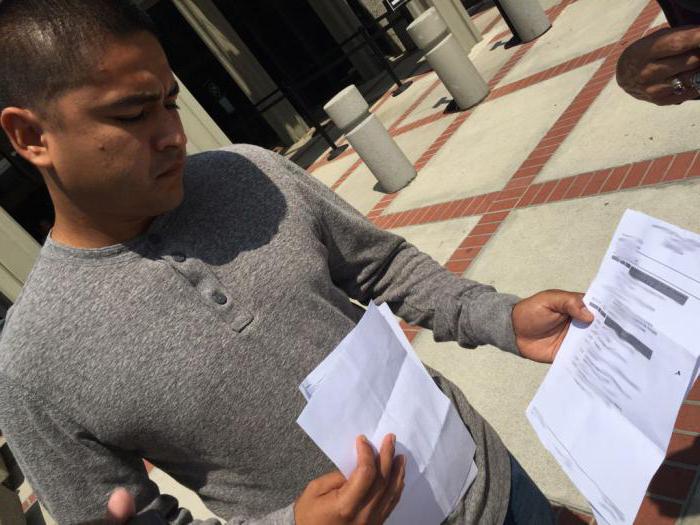
Penalties for Major Repairs of Mkd for 2020 Calculator
Innovations in legislation are practiced annually and they relate to many areas of citizen activity. Thus, one of the innovations of 2012 was the law on the overhaul of apartment buildings. According to the standard, all owners of square meters in the Moscow Railway are required to make contributions to the upcoming capital project. Since the amounts of contributions are considerable, these additional penalties aggravated the situation with paying for utilities.
We recommend reading: Young family program Chelyabinsk confirm payment through the bank
Features of the collection for major home repairs in 2020
- Articles 154 and 155 of the Housing Code, which assigns citizens the obligation to pay capital contributions and entitles companies to impose fines upon non-payment;
- Federal Law No. 271 - as the main document revealing the essence of contributions for major repairs and the procedure for collecting them;
- Federal Law No. 185, which regulates the rules for the formation and use of capital funds;
- Federal Law No. 399, which gives pensioners the right to pay tax on the Kyrgyz Republic with a 50% discount, and generally prohibits taking these taxes from people who have reached the age of 80.
The exact legal rules regarding contributions for major repairs will be determined by the authorities in the regions. The fact is that these new developments are under a 5-year warranty with the developer, and therefore he will correct all violations and problems at his own expense. But general meetings of residents of such new buildings do not exclude consideration of issues regarding the collection of the above fees, their size, as well as the initial purposes for which they will be used. Residents of new buildings cannot avoid paying for a major renovation of their houses. They can start paying in advance.
Federal benefits
In 2020, the legislation regarding contributions for capital repairs has undergone changes affecting the category of beneficiaries. If previously it was possible to obtain relaxations only from regional authorities, now they are also provided by federal authorities and apply to all regions. So, you can count on special conditions:
- people who have confirmed disability of the first and second groups;
- families raising disabled people;
- owners who have crossed the 80-year mark may not pay anything at all;
- Owners aged 70 or older pay only half of the premiums.

